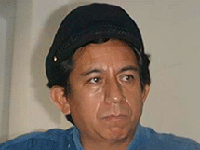
Social Movements and Progressive Governments: The Current Veins of Latin America
Bolivia has Evo Morales. Mexico has the Zapatista movement. Argentina is Kirchner's. Where do social movements stop when facing progressiveness that restores power? Are these governments the triumph, or the downfall of these movements? Raquel Gutiérrez Aguilar, a Mexican with vast experience in Bolivia, visited Buenos Aires to talk about these themes with local movements and with LaVaca.org, offering a deep look to look at the continent in its own mirror.

